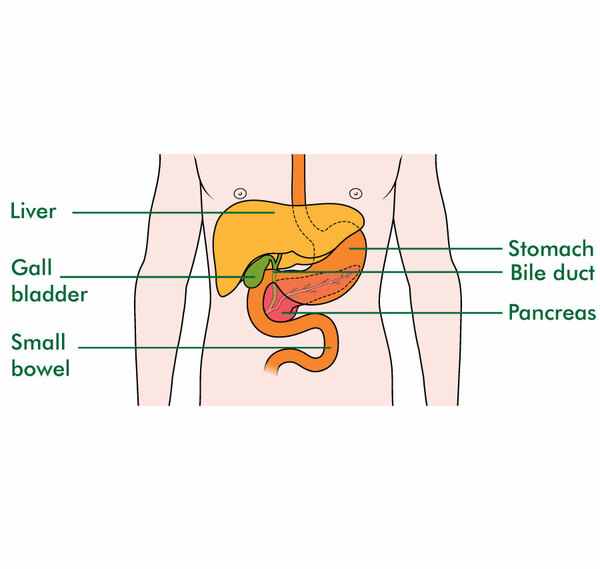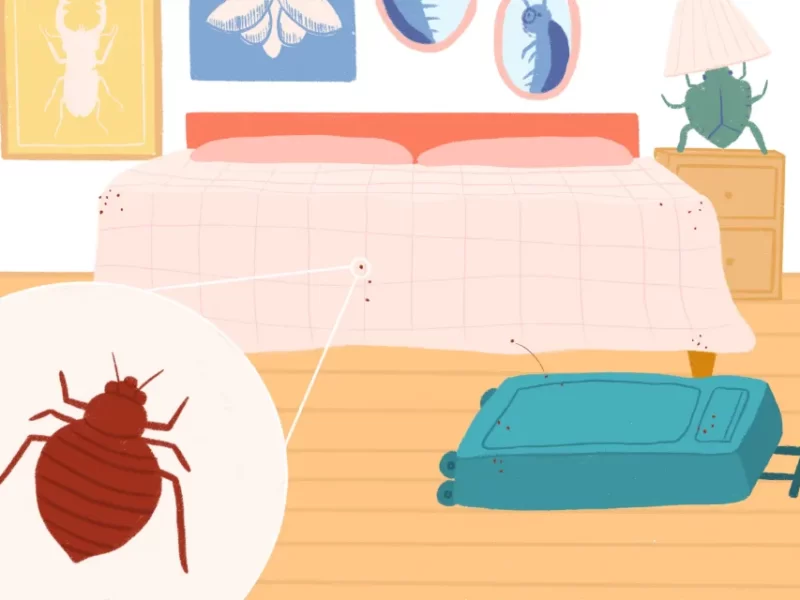Digestion and blood sugar regulation are two important functions of the pancreas. Unfortunately, surgery may be required to remove all or part of the pancreas if it develops cysts or cancer.
The pancreas can typically be replaced by medical therapies, but individuals without a pancreas still need to be closely monitored and receive medical attention. So, are you able to survive without a pancreas? You can indeed survive without a pancreas.
Pancreas
Under your stomach in your abdomen is a gland called the pancreas. It has a round head and a thin, tapered body, similar to a large tadpole. The duodenum, the first segment of your small intestine, is where the “head” is curved. Your stomach and spine are where the pancreas’ “body” is located.
There are two different types of cells in the pancreas. Different substances are produced by various cell types.
- Endocrine cells produce the hormones insulin, glucagon, somatostatin, and pancreatic polypeptide. The hormones glucagon and insulin both help to raise and lower blood sugar, respectively.
- Exocrine cells produce enzymes that help digest food in the intestine. Proteins are broken down by the enzymes trypsin and chymotrypsin. While lipase breaks down fats, amylase digests carbohydrates.
The pancreas serves two main purposes. The pancreas is separated into exocrine and endocrine pancreas for simplicity of understanding. The endocrine pancreas is interspersed within the exocrine pancreas in the actual human pancreas, where it is tiny (about 1% in weight or volume).
Chemicals known as hormones are released into the bloodstream by the endocrine pancreas.
The exocrine pancreas performs the function of digestion of food by pumping digestive enzymes into the bowel. Digestive enzymes are substances that break down the food we eat into smaller molecules.
When these enzymes are required, signals from the stomach and small intestine are sent to the pancreas. The pancreas responds to the signal by releasing its reserves of previously manufactured enzymes into the bowel right away. After that, for the following two to three hours, the small bowel digests.
The body needs enzymes to help it absorb nutrients so that it can get the materials it needs for normal functioning, building muscle, and producing energy. To digest protein, fat, carbohydrates, and other nutrients, specific enzymes are needed. All the food we eat would simply pass through if we didn’t have a pancreas. As a result, a person would have steatorrhea.

What Affect The Pancreas
The condition affecting the pancreas most frequently is diabetes. Some forms of diabetes are brought on by problems with the endocrine pancreas, while others are caused by issues with other body parts and, in rare cases, by medications used to treat other diseases. doctors with specialized training in treating diabetes.
The pancreas can also get inflamed due to irritation from a variety of agents. This is called pancreatitis. Also fairly typical is this. Depending on the trigger and length of the condition, there are numerous types of pancreatitis.
Alcohol and gallstones are the most frequent causes of pancreatitis. In some circumstances, pancreatitis can be fatal, and patients should only receive care from surgeons or medical professionals with a focus on this condition.
Pancreatic cancer is more frequently diagnosed such that it is likely to be the second commonest cause of cancer-related death in the Pancreatic cancer comes in a wide variety of forms in the West.
Multidisciplinary teams of specialized physicians, including surgeons, gastroenterologists, and oncologists, diagnose and treat pancreatic cancer.
Pancreatic cysts are increasingly being found as a result of increased use of scans such as ultrasound, MRI, and CT scans. As some of these cysts may be pre-cancerous, they need to be evaluated and watched closely once discovered.
Can You Live Without A Pancreas
The pancreas is not necessary for survival. However, you’ll need to make a few changes to your way of life. Substances produced by your pancreas help your body digest food and regulate blood sugar. To manage these functions after surgery, you’ll need to take medications.
It is now uncommon to perform surgery to remove the entire pancreas. However, if you have pancreatic cancer, severe pancreatitis, or damage to your pancreas from an accident, you might require this surgery.
The life expectancy after pancreas removal surgery is increasing as a result of new medications. Depending on your health, your outlook will change.
One study found that the seven-year survival rate after surgery for people with noncancerous conditions like pancreatitis was 76 percent. The seven-year survival rate was only 31% for those with pancreatic cancer, though.
Why Would The Pancreas Be Removed
There are a number of reasons why doctors might remove the pancreas, including:
Pancreatic Cancer
One of the most deadly forms of cancer is pancreatic. Only 7% of people with this type of cancer survive more than 5 years after being diagnosed. This is primarily due to the difficulty in early detection of pancreatic cancer, which allows it to spread to other organs.
Pancreatic cancer surgery can take one of two forms:
- Curative surgery is used to remove all cancer, potentially curing the person. The time for this kind of surgery is before the illness has spread.
- Palliative surgery is used to prolong the life of the person and reduce the severity of some symptoms.
Chronic Pancreatitis
A pancreatic infection or inflammation that recurs or keeps returning is known as chronic pancreatitis. Chronic pancreatitis can run in families in some cases.
Extremely painful and even fatal, pancreatitis can be. A doctor might advise a full or partial pancreas removal if other treatments are unsuccessful or the organ is severely damaged.
Intraductal Papillary Mucinous Neoplasm
Precancerous tumors called intraductal papillary mucinous neoplasms (IPMN) develop in the pancreatic ducts. If not addressed, they might turn into cancer. A doctor may sometimes recommend removing all or a portion of the pancreas to prevent the tumors from becoming cancerous
Any of these conditions can be treated in other ways besides by having the pancreas removed. When determining the best course of treatment, a doctor will discuss the advantages and disadvantages of surgery with the patient and take into account their general health.
Pancreas Removal Surgery And Recovery
Total pancreatectomy refers to surgery to remove the entire pancreas. Your pancreas is located close to other organs, so the surgeon might also remove:
- your duodenum (the first part of your small intestine)
- your spleen
- part of your stomach
- your gallbladder
- part of your bile duct
- some lymph nodes near your pancreas
The day before your surgery, you might need to start drinking only clear liquids and take a laxative. You feel better after following this diet.
A few days prior to surgery, you may also need to stop taking some medications, particularly blood thinners like aspirin and warfarin. To put you to sleep during surgery and alleviate any pain, general anesthesia will be administered.
Your surgeon will attach your stomach and the remaining portion of your bile duct to the jejunum, which is the second segment of your intestine after your pancreas and other organs have been removed. Food will be able to pass through this connection from your stomach and into your small intestine.
You might be able to undergo an islet auto transplant during your surgery if you have pancreatitis. The cells in your pancreas that produce insulin are known as islet cells.
Your pancreas’ islet cells are removed by the surgeon during an autotransplant. In order for your body to continue producing insulin on its own, these cells are returned to it.
You’ll be brought to a recovery room after surgery to begin your recovery. You might have to spend a few days or even up to two weeks in the hospital. To drain fluids from the surgical site, a tube will be placed in your abdomen.
A feeding tube could be present as well. This tube will be taken out once you are able to eat normally. To help you manage your pain, your doctor will prescribe medication.
What Will Change In Life Without Pancreas
After having their pancreas partially or completely removed, patients must be willing to make the necessary lifestyle changes in order to recover and live healthy lives.
Patients must be deliberate about monitoring blood sugar levels after this surgery, planning what and how much to eat, and being aware of their bodies. Although it may seem difficult, patients learn to overcome these obstacles.
While consistency and discipline are crucial, the treatments are somewhat forgiving if a patient forgets to take one or two pills or get an injection. But if neglected frequently, patients will probably start to feel the effects of uncontrolled diabetes.
For instance, skipping insulin injections can result in damage that causes nerve damage, blindness, stroke, heart attack, and kidney failure. Forgetting to take your enzyme supplements can lead to gastrointestinal problems like diarrhea and fatty stools or vitamin deficiencies that cause severe osteoporosis.
The price of enzyme pills presents the biggest difficulty. It can be very expensive to purchase those pancreatic enzymes for patients without prescription drug coverage. The enzymes are expensive; insulin is reasonably priced.
Insulin pumps, which deliver a continuous infusion of short-acting insulin throughout the day via a small tube inserted under the skin, are an additional option for maintaining insulin levels.
This gadget can be programmed to release more insulin in response to meals based on the needs of the user’s body. It only controls insulin; it is unable to foresee when blood sugar levels will begin to fall.



